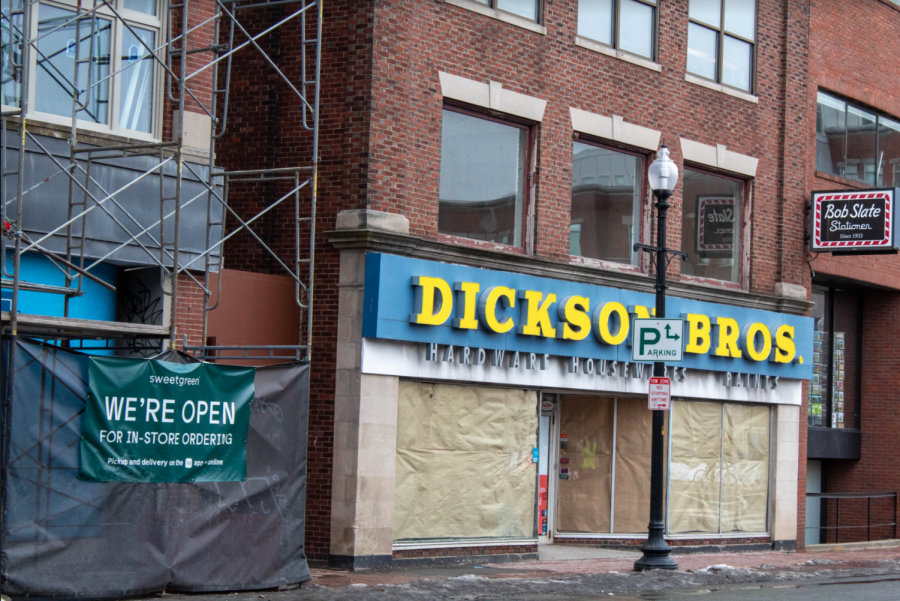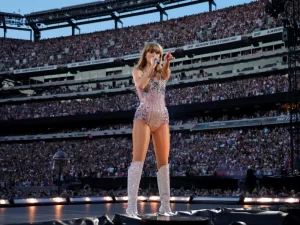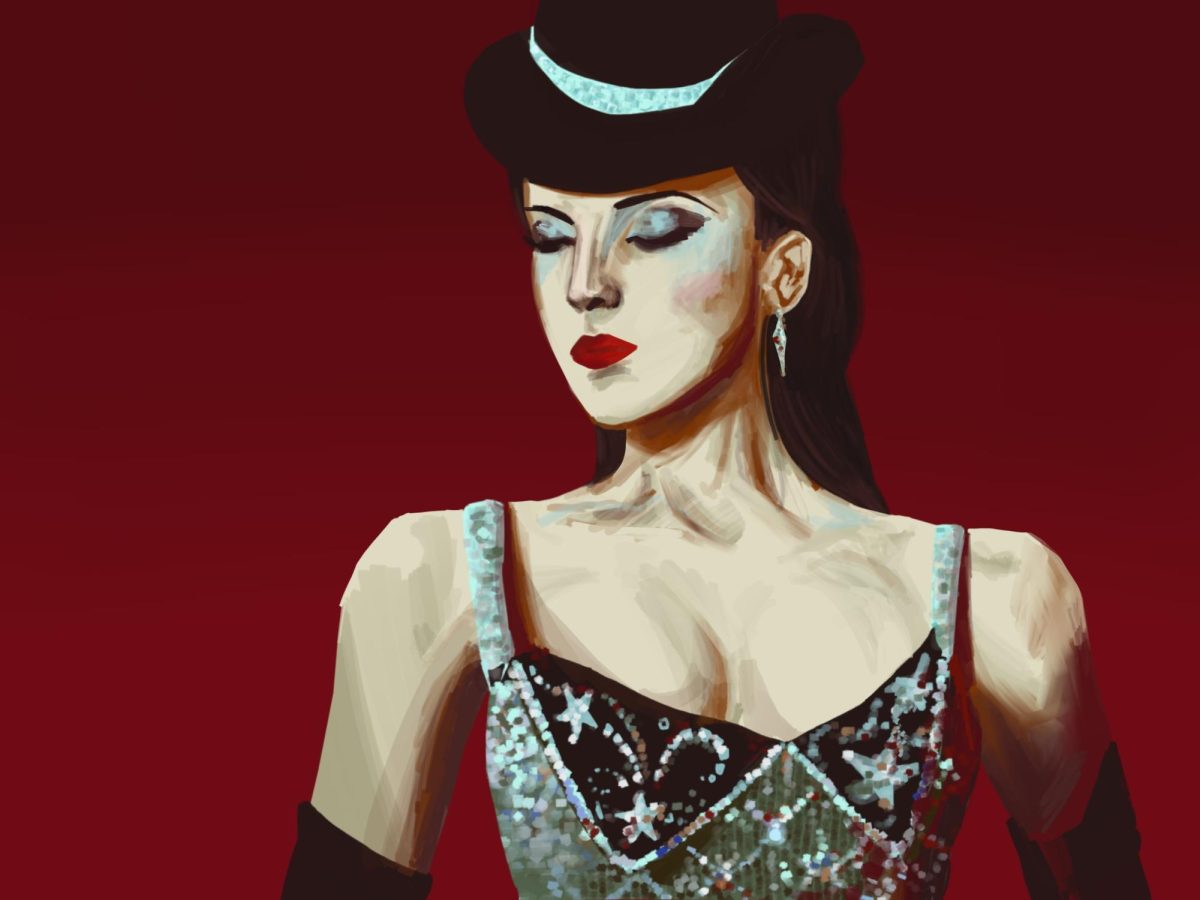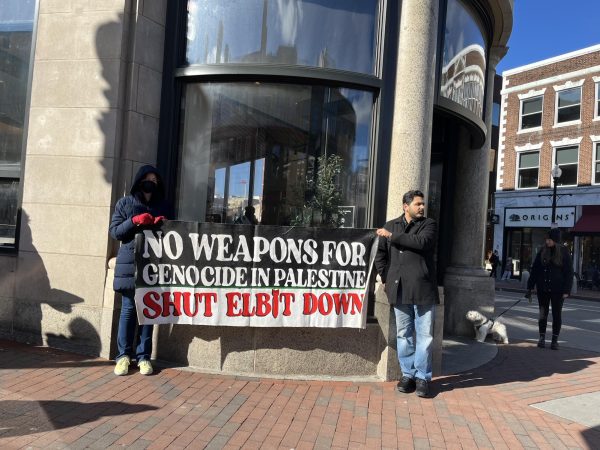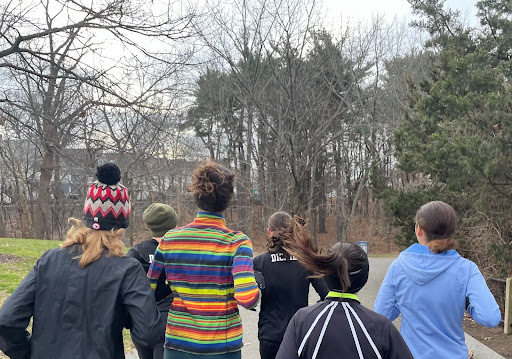Harvard Square Continues to Lose Beloved Businesses—Worsened by the Pandemic
Pictured: Dickinson Bros, former hardware store, on Brattle Street.
February 26, 2021
Harvard Square is one of the more popular destinations in Cambridge—and with good reason. The neighborhood is the perfect meeting spot in the city; at the center of Cambridge, the square contains unique storefronts, scenic views of the Charles River, and all sorts of cuisine. But as the years have passed, small and historical storefronts have been replaced by new chains and projects. Will the replacement of popular destinations in the square decrease the desire to go? Is Harvard Square heading toward its downfall?
Is Harvard Square heading toward its downfall?
Since its establishment in the 1600s, Harvard Square has been a popular spot for activities and shopping for the Cambridge community. “The Square” has always been at the center of protests, political movements, and other important historical events. Harvard Square has survived many different eras, including the hippie movements of the 1960s, and punk scenes in the 1980s and 1990s.
Even before the pandemic, many loved and long-standing businesses along Brattle Street were closing one after another, replaced by mainstream clothing companies. Local and tourist favorites Crema Cafe and Hidden Sweets were closed within two years of each other. The cafe was replaced with the new cafe chain Bluestone Lane, and Hidden Sweets with a Lululemon. The Tannery, another Cambridge favorite, was replaced with a Patagonia store, and new Ray-Bans and Moleskine locations have recently opened on the block.
Many of the businesses around 1 JFK Street have suffered from forced closures for the new project “The Abbot,” which will be a new shopping center that plans to open in the coming years. The project has turned the block that once held Tealuxe, Urban Outfitters, Sweet, and The Curious George Store into a construction zone. There have been no confirmations of what stores and cafes will be in the new shopping center, but many of the businesses that were at the location are hoping to make a comeback.
The two historical newsstands, Out of Town News and Crimson Corner, have also closed to make way for new businesses. The longstanding Crimson Corner was replaced by Milk Bar, a bakery chain founded by Masterchef host Christina Tosi. The bakery, which is known for its $3 cookies and $7 fun-sized shakes chose Harvard Square to be its next victim after the success of their locations in other major cities including LA and New York. CRLS Freshman Tessy Kent said about the Milk Bar, “It’s absurd that businesses like Milk Bar can charge $7 for a milkshake just because of its name.” The Out of Town News building, which was built in 1928, has yet to be occupied and currently houses local artwork and murals.
The rapid closures of these businesses are devastating and scary, and COVID has left the future of Harvard Square even wearier.
Although most businesses in Harvard Square were shut down between 2017 and 2019, COVID-19 has also caused the closure of some of the few remaining local businesses. Cafe Pamplona announced that they were shutting down early into the pandemic after they lost all of their business when Harvard students were forced to leave the campus. The hardware store Dickson Bros and the nearby Legal Sea foods also left their buildings recently. Cafe Pamplona owner Nina Hovagimian explained her decision to close to the Boston Globe: “From March until the first week of May, I was still going in every day. But I had one or two customers each day, at the most. Reopening didn’t make sense. I wasn’t making enough to buy the food. My clientele was 85 to 90 percent students.”
The rapid closures of these businesses are devastating and scary, and COVID has left the future of Harvard Square even wearier. It’s important to keep hope, but at the rate that rent is increasing, it’s only getting harder for locales to start and maintain businesses, leaving room only for high-end chains.
Cambridge residents aren’t the only ones worried; business owners like Doug Cho of Boston Tea Stop are also disappointed in what the area is becoming. Doug explained to the Register Forum: “When there is nothing but chains, you lose the unique characteristics that come with all the different approaches to doing business. These are the things that make a place, and life, interesting. Whether it is food or clothing, when every place is the same, nowhere is special.”

